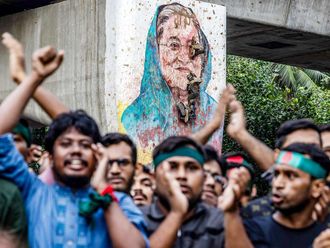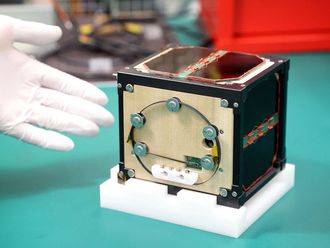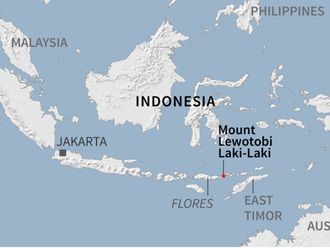Colombo: Sri Lankan President Mahinda Rajapaksa is aiming to get his ruling alliance a two-thirds majority in the 225-member parliament at polls on Thursday.
That would give the him the votes he needs to amend Sri Lanka's constitution.
Although Rajapaksa has said little about the changes he wants, the opposition has vowed to thwart what it calls a threat to democracy and a recipe for authoritarianism.
Here are some questions and answers about what may happen:
Can Rajapaksa get the necessary 150 seats in parliament?
It is difficult to predict, but history is against him: only once has any political party got more than 50 percent of the parliament since Sri Lanka adopted a proportional electoral system in 1978.
The system directly awards 196 seats under a formula that first takes into account the votes won by a party in a district and then votes for candidates. The remaining 29 seats are awarded in proportion to votes won by the parties islandwide, with parties selecting who will serve.
Taking Rajapaksa's 57.8 percent total versus challenger General Sarath Fonseka's 40.2 percent in the Jan. 26 presidential election as a guide, the president's alliance should win roughly 120-125 seats and the combined opposition about 100-105.
Can he get two-thirds even if the election doesn't yield it?
It's possible. After he was elected in 2005, he engineered the crossover of 40 politicians to his alliance in parliament to gain the majority and counter a host of defections. He did that mainly by handing out ministerial and deputy minister posts with additional perks. That gave him his present majority of 126, and more than 110 ministers and deputy ministers.
However, he has said he wants to drastically trim the ministerial list so the inducements he will offer this time are unclear. Nonetheless, Rajapaksa has the instruments of state firmly in his hands and has displayed a knack for bringing people to his side with a mix of charm, patronage and coercion.
What does Rajapaksa want to do?
He has not been clear about the specific constitutional amendments he would want to make, and with the two-thirds majority, changes would be up to his whim.
At one rally, he said wanted to replace proportional voting with a "first past the post" system that awards a single seat to the highest vote-getter in each district.
That, of course, would benefit his party and help his political longevity.
This is a bit ironic because former President J.R. Jayawardene used his five-sixths majority in 1978 to change the constitution to replace that system with the current proportional method.
Jayawardene also vastly increased the powers of the presidency, and many Sri Lankans have agitated for a new constitution to reduce those and include provisions to devolve power to minority areas.
Is he likely to push for those changes?
No. Devolution in theory would give Sri Lanka's Tamil, Muslim and other minorities more say in government in the face of a Sinhalese majority that accounts for 75 percent of the island's 21 million people. A lack of it was at the root of a 25-year war the Tamil Tigers separatists fought until their defeat last May.
Rajapaksa has been cool to devolution and has ruled out any notion of a federation, vehemently opposed by hardline elements in his coalition. Instead, his recipe for ethnic reconciliation is to bring economic development to all areas.
As for reducing presidential powers, it is a rare politician who willingly cedes influence.
Nor has Rajapaksa blushed at local accolades comparing him to King Dutugemunu, one of Sri Lanka's most famous absolute rulers from the second century B.C.











